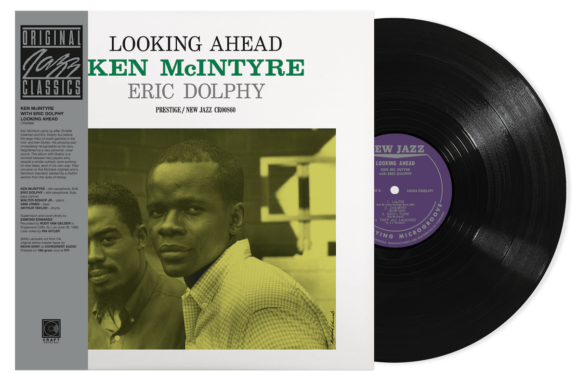Television often relegates stories centered on women’s experiences to secondary status, dismissing them as lightweight entertainment or guilty pleasures. This systematic devaluation persists despite the commercial success and profound audience connection these narratives engender. Against this backdrop, Lisa Hamilton Daly is emerging as a transformative figure in the entertainment industry, deliberately championing female-focused content and demonstrating its cultural and commercial worth.
With an academic background studying underappreciated female authors and professional experience spanning Lifetime, Netflix, and other major networks, Daly developed hit series including “Virgin River,” “Sweet Magnolias,” and “Firefly Lane” that redefined expectations about women’s stories on screen. Her strategic programming decisions opened new markets for streaming platforms while providing viewers with authentic representations of female experiences rarely given serious treatment in mainstream entertainment.
How Television Diminishes Women’s Stories
That familiar eye-roll follows descriptions of female-focused entertainment. The dismissive scoff greets content centered on women’s emotional journeys. Under-the-breath comments emerge when female viewers express enthusiasm for relationship-driven narratives. Within the social currency of legitimacy, women’s stories consistently receive lower valuation.
The television that women watch, along with the themes that truly resonate with female audiences and the aesthetics they appreciate, often gets unfairly ridiculed or dismissed as frivolous, shallow, and unserious. In contrast, men’s viewing preferences, like gritty crime dramas, epic fantasies, and superhero franchises, are typically seen as just entertainment. They’re considered neutral and acceptable, often even elevated to the status of art, genius, or cultural milestones.
“They were not critically very well received because they focused on emotions and feelings,” explains Lisa Hamilton Daly about the 19th-century female authors she studied academically. “Male critics really don’t like you to talk about that. They prefer other topics, and this theme continues in what interests me: female subjectivity, women’s thoughts, feelings, and how they express themselves.”
The Roots of Dismissal in Entertainment Culture
Why do the shows women love become the punchline, while the shows men enjoy receive treatment as cultural landmarks?
This disparity stems from a deep-seated issue: systematic devaluation of femininity. Western societies traditionally align masculinity with strength, logic, and seriousness, while connecting femininity with emotion, frivolity, and excess. Women drawn to specific genres, such as relationship dramas, romantic comedies, and emotionally complex narratives, often find their preferences dismissed instead of acknowledged as culturally significant. Critics often label these stories silly, excessive, and insubstantial.
This bias runs through the entertainment industry, revealing itself in content categorization:
Romantic dramas? Relegated to a lesser status. Female friendship stories? Deemed lightweight. Community-focused narratives? Labeled basic.
These genres share a common trait. They represent spaces women carved out, spaces of emotional authenticity, personal connection, and considerable depth. Yet content dominated by women rarely receives serious consideration unless men enter the picture.
Lisa Hamilton Daly Transforms Content Development
Lisa Hamilton Daly recognized the opportunity to confront these entrenched biases when joining Netflix. Rather than accepting the industry’s dismissive attitude toward female-centered content, she championed it deliberately, naming her development strategy accordingly.
“I still remember when I was at Netflix, I had a pod of my own and I named it Melodrama and Romance,” Daly recounts. “Actually, one of the other female executives asked, ‘Why would you want to call something melodrama?’ I said, ‘because I want to reclaim it. I want to make it okay to talk about women’s feelings.”
This approach directly confronted television’s gendered hierarchy: Men’s preferences receive universal recognition. Women’s preferences are often confined to niche categories.
Enthusiastic discussion about the latest superhero franchise raises no eyebrows. Nobody questions its cultural validity. Conversely, similar excitement about relationship-driven dramas or emotional storytelling meets disdain, infantilization, and mockery.
Daly identified this double standard and confronted it: “Game of Thrones is just a soap opera with rape and men in the forest. They somehow elevate things that are male and masculine and think, ‘Oh, this is great.’ That content contains just as much melodrama and exaggeration.”
Male Default, Female Exception
This reality reveals a noticeable trend: men’s entertainment preferences often set the standard. In contrast, women’s preferences tend to be viewed as the “other”- optional, extra, and not as culturally significant. Terms like “female-led,” “women’s fiction,” or “chick flick” create subcategories that suggest womanhood is an exception to the human experience rather than a vital and celebrated part of it.
Lisa Hamilton Daly noted this categorization in Netflix’s content organization: “Netflix had programming focused on young adults and edgier content. They lacked that middle American programming that could reach different viewers.”
This positioning of female-centered content as secondary or specialized reflects broader cultural tendencies treating masculine as default and feminine as deviation. Challenging this framework required creating content centering women’s experiences while maintaining high production standards.
Mockery and Its Consequences
The sting of having your passions mocked creates a lasting impact. Women learn to anticipate ridicule. They cushion their excitement with disclaimers. They label their preferences as “guilty pleasures.” They say, “I know it’s silly, but I love it.” Their joy diminishes before others can diminish it.
This internalized shame becomes routine. Female viewers might enthusiastically follow emotional dramas while preparing themselves against the “too sentimental” stereotype. They might connect deeply with relationship-centered stories only to hear accusations of obsessing over “frivolous” content.
Daly encountered this prejudice directly: “The shows didn’t cost as much. They weren’t as shiny, sexy, and hip as other shows. I received some shade from my colleagues.”
Despite dismissive attitudes, her conviction held that women’s stories deserved serious consideration and substantial resources. Her methods and ongoing projects questioned the industry’s tendency to treat such content as inherently less valuable or investment-worthy.
Cultural Losses from Dismissing Women’s Stories
Downplaying women’s entertainment choices affects more than just individual women; it undermines culture as a whole. Vital narratives are deprived of exposure. Emotional intelligence and connections are neglected. Audiences miss out on stories that help them feel acknowledged and understood.
Daly recognized these overlooked narratives’ significance: “I have wide-ranging viewing tastes. I watch horror, comedy, thrillers, everything. However, different needs emerge at different times. Sometimes sitting down to experience female friendship feels necessary. Those softer moments matter.”
Imagine entertainment without apology. Crime dramas and relationship-centered narratives are receiving equal cultural weight. Emotional storytelling is valued equally alongside action-driven plots. All entertainment formats are acknowledged for their depth and meaning.
How Lisa Hamilton Daly is working towards Path to Industry Transformation
- Taking back diminished categories: Her deliberate embrace of terms like “melodrama” – working to neutralize their power as devaluation weapons.
- Quality production standards: maintaining consistent quality and authentic emotional resonance, regardless of budget
- Trusting emotional intelligence: “People mention my strong gut instinct. Research helps, but ultimately, when something feels compelling, something clicks inside me.”
- Community and connection: helping others to recognize these themes have universal significance despite gendered categorization. “Virgin River, Sweet Magnolias, The Way Home speak to women’s need for community. They explore finding community, family, and love through different storytelling approaches.”
- Demonstrating business value: These supposedly “niche” stories are driving substantial audience growth. “This content actually became some of their most acquisitive programming because it attracted viewers they never had before.”
The Reality About Women’s Stories
The truth remains clear: stories women love contain substance.
They bring joy. They build community. They matter. They constitute art. They stand complete in themselves.
Daly built her career on this conviction, creating programming that acknowledges and celebrates women’s emotional experiences rather than trivializing them. Her success represents more than television hits; it indicates a potential shift in how the entertainment industry values diverse storytelling approaches.
“Starting with just an idea, a writer and a producer, then watching that premiere and launch into the world touches many people,” Daly explains. “It becomes meaningful in their lives. That impact drives me.”
Through questioning persistent devaluation of women’s stories and demonstrating their cultural and commercial importance, Daly continues transforming what appears on screens and how viewers value the complete spectrum of human experience in entertainment. Her work proves that acknowledging “women’s interests” as legitimate expressions of human experience benefits everyone: viewers, creators, and platforms alike.








